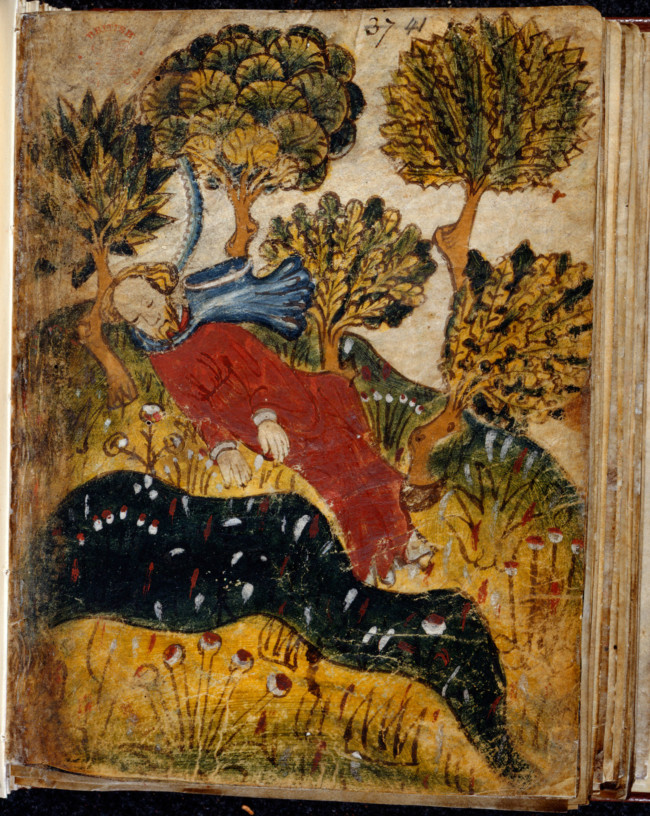Madeleine McCann: a bride of Christ, an old story and grief recast as a mental health issue
No word on Madeleine McCann in any of today’s printed tabloids. But there is is news on the web. Following the non-news that the Met might or might not seek money to continue Operation Grange, the investigation into the disappearance of Madeleine McCann in 2007, the Express online delivers: “Madeleine McCann’s father reveals mental health battle in HEARTBREAKING interview.” As ever it was, the Press are watching the parents.
Madeleine McCann’s father will speak about the grief and depression he faced over losing his daughter in a heartbreaking interview on Radio 4, in a bid to remove the prejudice men face when talking about their feelings.
What prejudice? No TV or radio show is complete without a man crying, whether it be over a DNA test on mid-morning telly or a well-baked cake on prime time. “I decided it was a good opportunity to say something about the special bond between fathers and daughters,” says Gerry McCann, “thinking that speaking openly might help other men in similar positions. It feels like the right time.” Fir enough. But isn’t there is a special bond between men and their children, regardless of gender. The sane can surely sympathise with parent whose lost a child, but why is this news? Someone from the BBC explains:
“We look at Gerry’s experiences, his thoughts and feelings, and the wider context in society of mental health issues surrounding a loss. Susan Roberts, our producer, has already interviewed Gerry over the past few weeks, it has been recorded and we are now doing the final edit. It’s very emotional and helps get across the point of view of mental illness associated with a loss or bereavement of a family member or friend, that there is no stigma in men opening up and discussing emotions with someone is important. In our show there is a parallel between the poem of a father’s loss and the real life experience, reflecting the two.”
Eh? Grief and loss is now a form of mental illness? It’s not a human reaction to loss. It’s a treatable condition. As for the tosh about men not emoting and expressing themselves, how may poems has the producer ever read? What about books, films, music and art? Did women write them all? As for facts about the missing child, we’re told: “There have been 8,685 potential sightings of Madeleine in 101 countries, but all of them have been ruled out.”
Over in the Mail, where the BBC press release is an “exclusive”, we learn:
He will be interviewed by poet Simon Armitage on a special Radio 4 show: Pearl: Two Fathers Two Daughters. The show will weave together two voices of grief: Mr McCann’s and that of an anonymous poet from 600 years ago who laments the loss of his daughter in a poem entitled Pearl.
Mr Armitage, who wrote a poem to mark the 1,000 days of Madeleine McCann’s disappearance, has written a new translation of Pearl. We don’t know who wrote the original version about the loss of a child and her father’s pain. The New Yorker reviewed the poem steeped in New Testament imagery and numerology in 2016. In one scene her father sees his lost daughter as the bride of Christ:
In the poem, the narrator visits the spot where a pearl once slipped from his grasp and got lost among “Gilofre, gyngure, & gromylyoune, / & pyonys powdered ay bytwene” (“ginger, gromwell, and gillyflower / with peonies scattered in between”). Swooning into unconsciousness, he comes to in a dream, in a place he has never been before, where cliffs split the sky (“ther klyfez cleven”). Across a river, he sees his pearl again, but now the “perle” is no mere thing—she is a young girl, richly arrayed in an elaborate outfit covered in pearls. Pearl also seems to be her name, or at least it is how the man addresses her: “ ‘O perle,’ quod I . . . ‘Art thou my perle?’ ” In reply, she calls him a jeweller, and he refers to her as a gem (“ ‘Jueler,’ sayde that gemme clene”).
Overcome with joy at finding his lost pearl, and unable fully to understand the complicated things she says to him, the dreamer plunges into the river to swim toward her. He is desperate to “swymme the remnaunt, thagh I ther swalte”—to swim across, or die trying. This angers the ruler of the celestial land, called the Prince: the dreamer does not belong there. He is flung out of his dream as punishment. He wakes up, and the poem ends with a short meditation on the glory of God, and then the words “Amen. Amen.”
The child in Pearl is dead. We do not know what happened to Madeleine McCann, save for her vanishing.
On a final note the Mail tells us:
The doctor’s new-found openness to help others cope with loss comes after Prince Harry, now Duke of Sussex, spoke about his struggles with mental health in a groundbreaking podcast interview on May 2017 with the Daily Telegraph’s Bryony Gordon for her revered ‘Mad World’ series. The young royal spoke openly about bottling up his emotions and being unable to grieve for years after the loss of his mother Princess Diana, who was killed in a car crash in Paris in August 1997.
From Princess Diana to Madeleine McCann. When private grief became celebrity mourning.
Posted: 17th, September 2018 | In: Key Posts, Madeleine McCann, News Comment | TrackBack | Permalink



